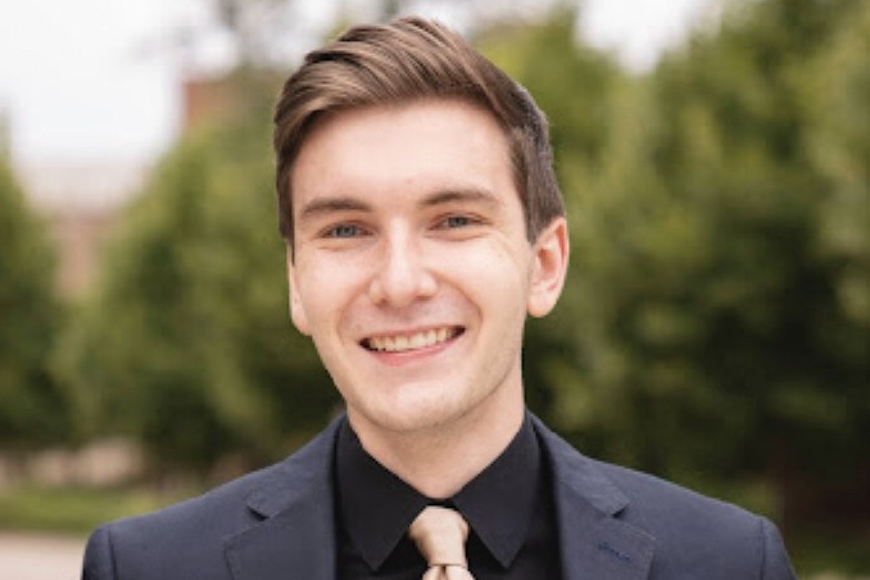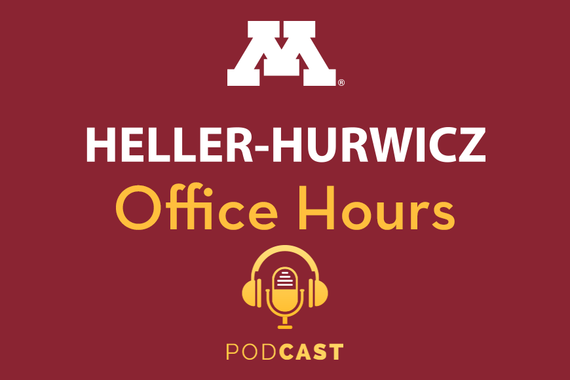Undergraduate Senior Profile: Kevin Jacobson
Kevin Jacobson is currently a senior at the University of Minnesota studying economics and physics. During his time as an undergraduate student, Kevin has explored various interests and pathways in economics, including working as an undergraduate research assistant here at the Heller-Hurwicz Economics Institute.
Earlier this month, he had the opportunity to present his research in Cleveland, Ohio at the Midwest Economic Association’s annual meeting where he discussed models of rationality and the role of environmental context on market decision. In this interview, he talks about his experience attending and presenting at this conference. For more information check out Kevin’s research through the Minnesota Undergraduate Research & Academic Journal.
Give us a recap of your weekend presenting at the Midwest Economics Conference.
The Midwest Economic Association hosts an annual meeting for researchers, including special sessions for undergraduates to present their papers. I was among 20 undergrads invited to speak in Cleveland. I had the opportunity to hear from economists and student researchers studying health, the environment, and beyond. (There was literally a research paper on outer space!)
What research did you present at this conference and what were your findings?
In the past, I have presented research on automation and health, where I had the luxury of having access to rich datasets to analyze for results. I decided to step out of my comfort zone for the MEA meeting by writing an entirely theoretical paper titled “Nudging Human Psychology into Economic Theory”. To summarize, it discusses the rational-actor model, which provides an elegant description of optimal decision-making, but can be lackluster in predicting human behavior. I challenged myself to model irrationality in terms of cognitive biases without adding too much complexity mathematically. From here, I identify the conditions in which irrational consumers behave rationally. This involves careful adjustments in choice architecture to influence something I call a “perceived” utility function, which is a variable of goods and the environment.
Did you interact with other academics and students? Which research presentations that you saw were the more impactful?
Following my presentation, I received extensive feedback from my session chair. When I was not presenting, I had the chance to attend sessions on various topic areas. I attended a mix of undergrad and professional sessions. I was impressed with the volume of head-spinning monetary research done by other undergraduate students. Overall, I found the health economics presentations most impactful, as this research overlaps significantly with my work at the Heller-Hurwicz Economics Institute.
Would you pursue this research further or a different research project in the future?
I still consider “Nudging Human Psychology into Economic Theory” to be a work in progress. I am painfully aware of my paper’s shortcomings, which I would like to ameliorate before submitting manuscripts to undergrad journals. While I intend to see this project through, I do not see myself pursuing theoretical microeconomics nor behavioral science in the long term. I am more interested in projects related to labor, health, and inequality.
What are your plans after graduation?
This summer, I am leaving Minnesota to work at the Federal Reserve Bank of St. Louis where I will be a research associate for two economists. My ultimate goal is to become a research economist myself, so I plan to make the most of my experience at the Fed before beginning an economics PhD program. I hope to represent the University of Minnesota well, along with my good friend Mikolaj Dueholm, who is joining me in St. Louis!



